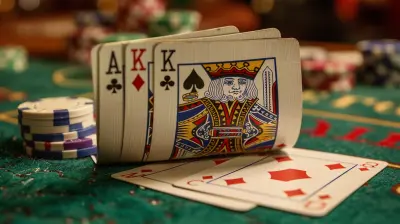Unconventional and Unique Card Games Around the World
14 September 2025
When you think of card games, names like Poker, Blackjack, or Uno probably pop into your head first, right? They’re classics for a reason. But have you ever wondered what kind of card games people are playing in far corners of the world? Believe it or not—there’s an entire universe of unique and downright quirky card games out there that’ll make your go-to Poker night seem a tad stale.
Some of these games are ancient, steeped in tradition and culture. Others are bizarre, fast-paced, and even involve bluffing skills that could rival a Hollywood poker face. So, buckle up! We're diving into some of the most unconventional and unique card games played around the globe. And who knows? Maybe your next game night will have a touch of Bhutanese or Nigerian flair.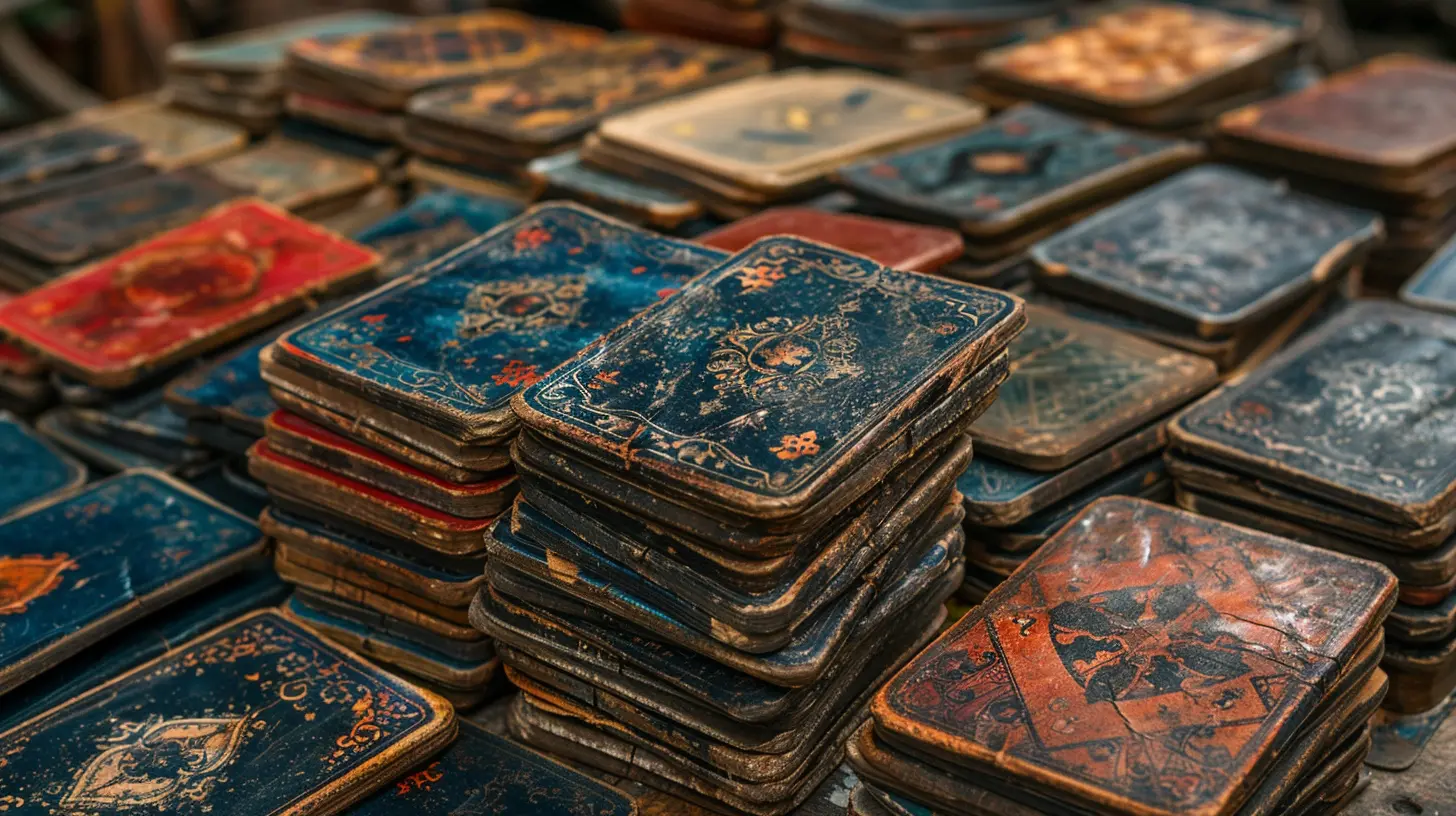
Why Card Games Thrive Across Cultures
Before we take our world tour, let’s chew on this thought—why do card games resonate worldwide? The humble deck of cards, whether traditional or customized, is cheap, portable, and easy to make. They transcend language barriers, making it super accessible in most cultures.People use card games not just for fun, but also to teach strategy, mimic life’s unpredictability, and, sometimes, to sneak in gambling (because we all love a bit of risk, don’t we?). This universal appeal is what gives birth to the weird and wonderful card variations we’re about to jump into.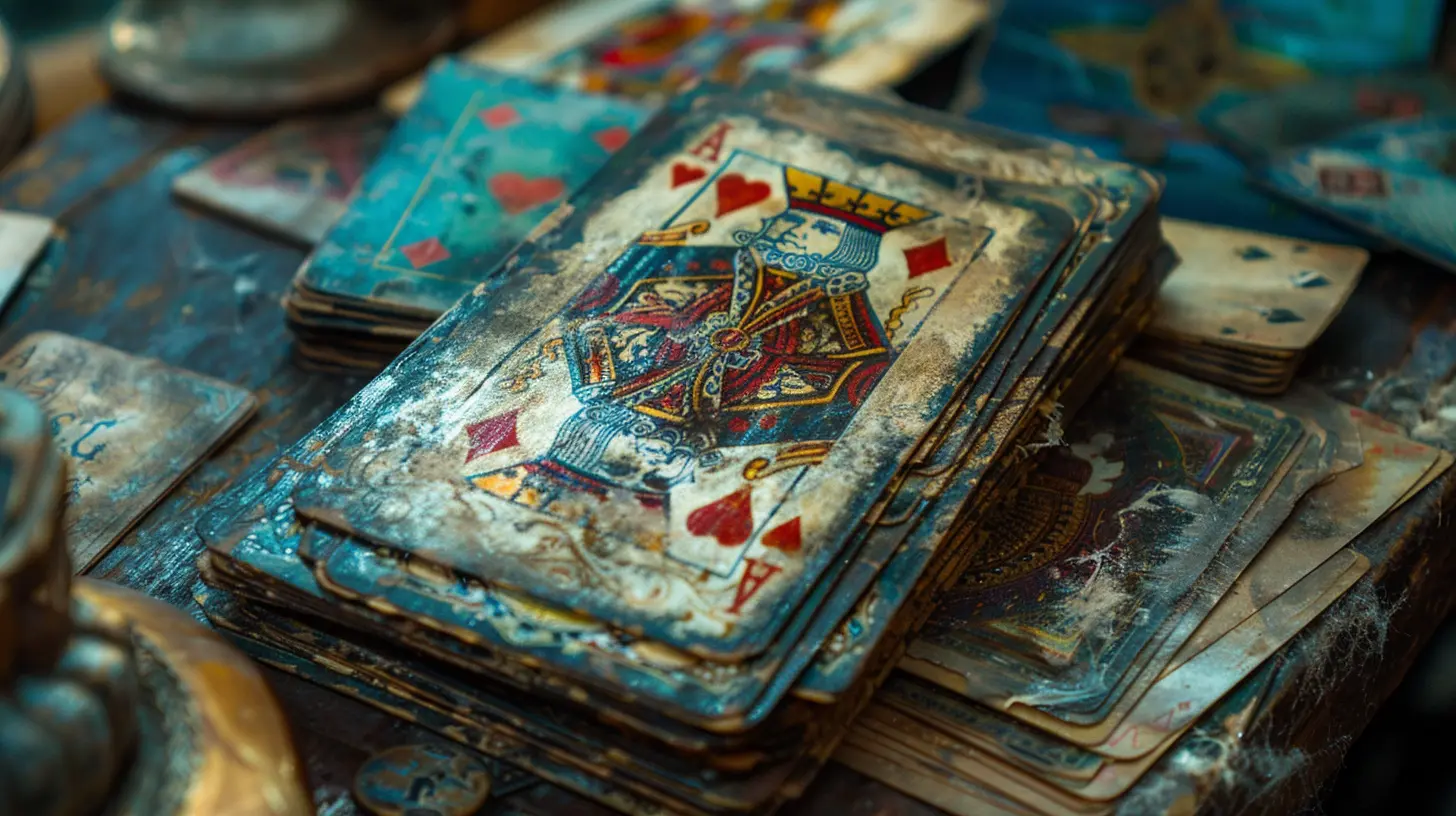
1. Koi-Koi (Japan)
Ever heard of Hanafuda cards? They're nothing like your typical 52-card deck. Koi-Koi is a beautiful, poetic Japanese card game played with Hanafuda, which are flower cards that represent months of the year.What's Cool About It?
- Cards are tiny artworks with symbolic imagery.- Players try to form matching sets based on months, flowers, and special combinations.
- The name "Koi-Koi" means “Let’s go again,” giving players a chance to risk their points for more—a strategic twist!
Cultural Vibe
It’s popular during the Japanese New Year and is often played in a calm, focused setting. It’s like the chess of card games—quiet but intense.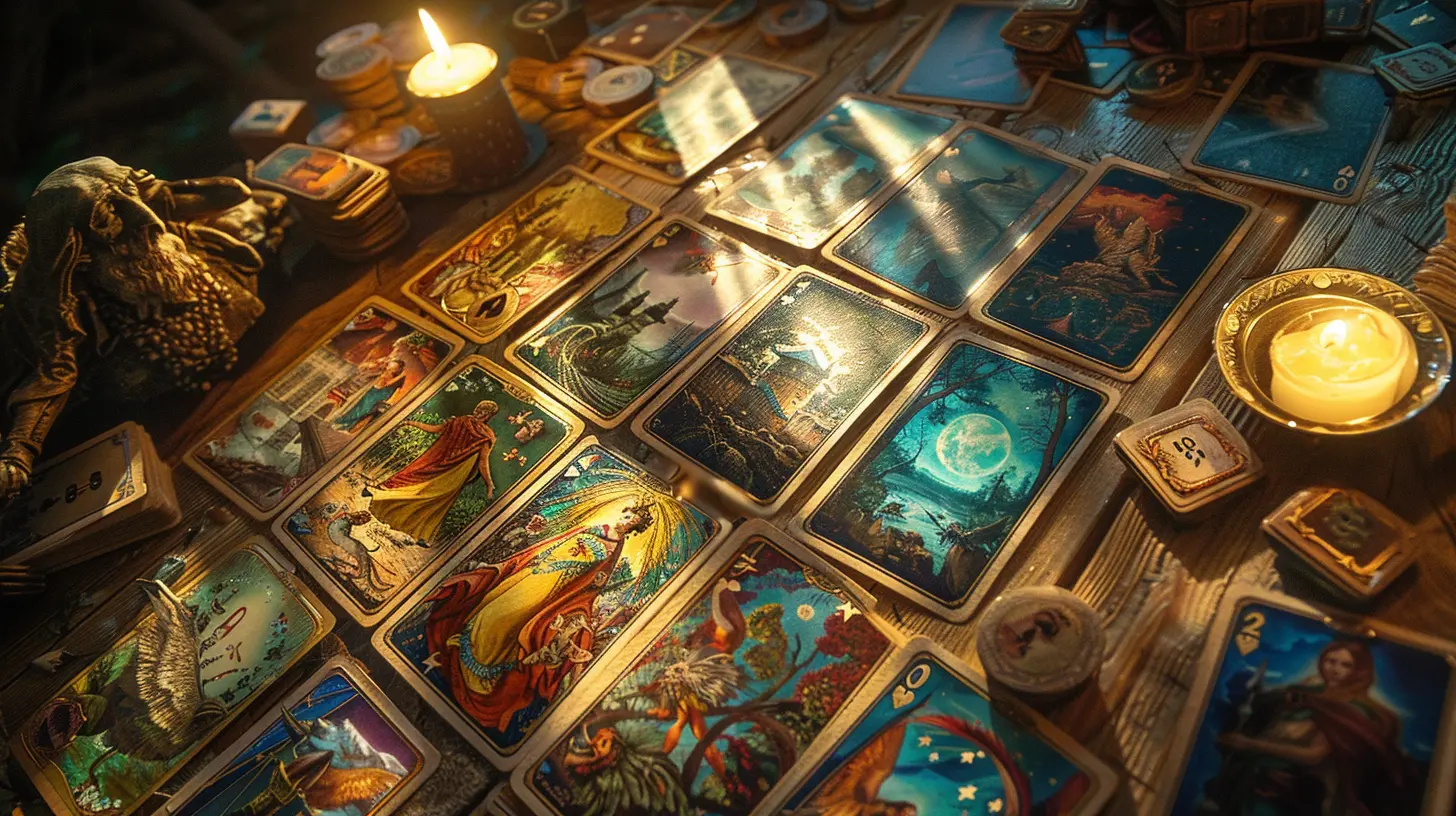
2. Tarabish (Canada via Eastern Europe)
This hidden gem is well-loved in Cape Breton, Nova Scotia, but its roots go back to Eastern European immigrants. It’s similar to Belote and is sort of a cousin to Bridge.Why It’s Unique
- It’s a bidding game played in teams.- Each round involves strategy-heavy decisions.
- Tarabish decks are actually just altered regular decks—you toss out a few low cards.
Fun Fact
Locals consider it so important that Tarabish tournaments are community events. Think fantasy football-level dedication.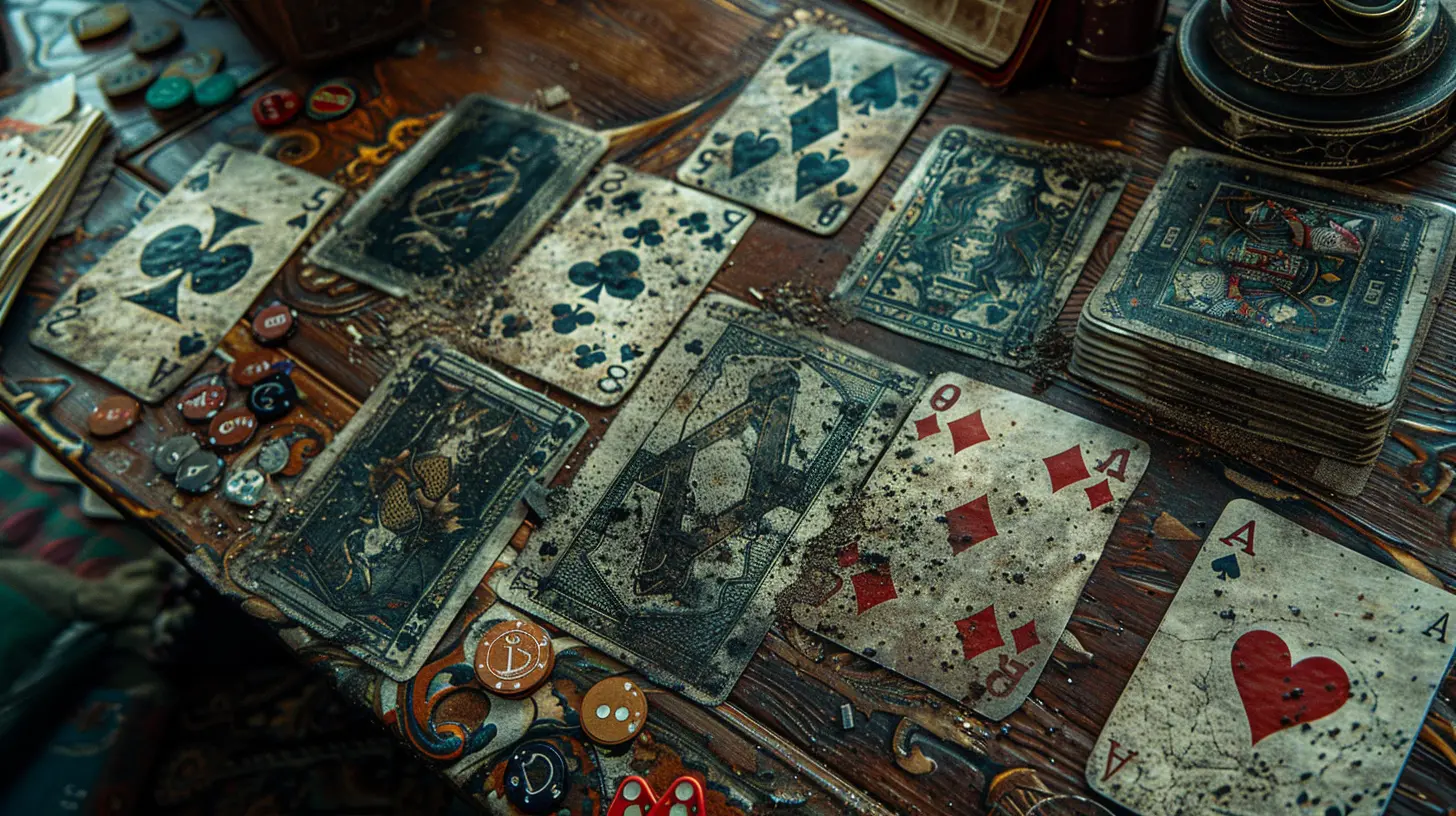
3. Yaniv (Israel)
Imagine a card game where getting the lowest score is the goal (yep, upside-down thinking). In Yaniv, players try to ditch high-value cards and "call Yaniv" when they think their card total is the lowest.What Makes It Stand Out?
- It’s quick and filled with tension.- Bluffing is key—you have to feel out when to call “Yaniv,” not knowing other players’ scores.
- Penalties keep things spicy if you're wrong.
It's fast, fun, and often played during backpacking trips across Israel and Southeast Asia. Think Uno—but on adrenaline.
4. Scopone / Scopa (Italy)
Let’s head to Italy, where this traditional card game is a staple in cafes. Played with a 40-card Italian deck, Scopa (and its team-based cousin Scopone) is all about capturing cards on the table.The Twist?
- It’s a memory game disguised as a card game.- You need to keep track of what’s been played and what’s still out there.
- Rules are easy to learn, but mastering it takes time.
Elderly Italian men playing in piazzas? Yep, that’s Scopa. It’s slow-burn strategy wrapped in Mediterranean charm.
5. Makruk Card Game Variant (Thailand)
While Makruk is traditionally a Thai chess game, a regional card variant exists among rural Thai communities. It’s informal, highly localized, and has rules that morph between villages.Why It’s Worth Knowing About
- It combines elements of traditional trick-taking card games with hints of chess-inspired thinking.- Cards are homemade or adapted from other decks.
It’s not easy to find outside Thailand, but it's a reminder that not all great games go commercial.
6. Belote (France)
If you’ve been to France, there’s a good chance you saw two old timers at a café, locked in a serious game of Belote.Why It's Special
- Played with 32 cards.- Strategy is everything—bidding, trumps, and memory skills define the game.
- It’s one of the few card games with an official tournament structure in France.
You don’t just “play” Belote. You master it. It’s basically the wine and cheese of card games—rich, layered, and proudly French.
7. Cuarenta (Ecuador)
Let’s zip over to South America. Cuarenta, meaning “forty” in Spanish, refers to the number of cards used in the game. It’s Ecuador’s national card game, and it’s a social glue.Key Features
- Players work in pairs—teamwork is crucial.- The goal is to “catch” cards by matching them or summing their value.
- It’s played in lightning-fast rounds.
What’s awesome? During Ecuador’s independence celebrations, entire cities turn into Cuarenta-playing battlegrounds. Talk about culture and cards colliding!
8. Ganjifa (India)
This one takes us way back. Like, waay back. Ganjifa is an ancient Indian card game that dates back to the Mughal era. Cards are circular, hand-painted, and absolutely stunning.What Makes Ganjifa Unique?
- It's played with decks ranging from 8 to 120 cards.- Themes vary: Hindu mythology, royal courts, astrology.
- It’s as much an art form as it is a game.
Revived by artisans and historians, Ganjifa is less about fast gameplay and more about cultural preservation with a deck of divine beauty.
9. Bida (Nigeria)
Here’s one you’ve probably never heard of unless you’ve been in the right circles in West Africa. Bida is a local Nigerian card game that blends strategy with rapid decision-making.Interesting Bits
- Played with locally modified decks.- Rules can vary by ethnic group and region.
- The gameplay is fast and involves pairing and shedding cards.
What makes Bida truly unconventional is its flexibility. It’s more like a storytelling game mixed with cards—local legends even sneak into rule variations!
10. Sticheln (Germany)
Sticheln (German for “to sting”) is a trick-taking game with a twist. Instead of avoiding cards of other suits, you actually WANT to sting others with nasty ones.It's Unique Because:
- You get negative points for taking cards of your own chosen "pain suit."- Other players can "sting” you by forcing you to take those.
- The social dynamics? Deliciously cutthroat.
It turns traditional trick-taking on its head. Imagine Hearts, but designed by someone with a mischievous streak.
11. Bataille Corse (Corsica)
If you’ve ever played Slapjack, this takes it to the next level. Bataille Corse is a reflex-based game involving slapping piles of cards when certain combos pop up.What’s Wild About It?
- Combines elements of War and Speed.- Players race to slap specific card patterns.
- Slaps can get intense—like, “why are you missing a fingernail?” intense.
It’s chaotic in the best way and totally not for the faint of heart or slow of hand.
12. Teekay (Nepal)
Teekay is a rare, traditional Nepali card game mostly played in local communities during festivals and gatherings.Unique Elements?
- Played with a 96-card deck split into four suits.- It incorporates elements of luck, memory, and bluffing.
- Games typically go on for hours and are woven into festivities.
Teekay is more than a game—it’s a social event, a bonding tool, and a test of endurance and concentration, all in one.
What These Games Teach Us
At the heart of every unique card game is a story—stories about people, their values, strategies, traditions, and what they love to do in their free time. While Poker might teach you to bluff, Scopa teaches observation, and Yaniv? That's all about guts.Some of these games may not appear on app stores or flashy casino floors, but they thrive in cafes, village squares, roadside inns, and among families. And that’s something money can’t really buy—authenticity.
Ready to Bring Something New to Game Night?
So, which one of these are you itching to try? Maybe you’ll source a Hanafuda deck online or test your reflexes with Bataille Corse. The point is—step outside the box. Sometimes the most fun you’ll ever have with a deck of cards comes from the games nobody’s ever told you about.And here's an idea: next time you travel, ask locals if they have a favorite card game. You might just stumble upon a new obsession.
all images in this post were generated using AI tools
Category:
Card GamesAuthor:

Brianna Reyes
Discussion
rate this article
1 comments
Isaiah Adkins
In every shuffle, a world unfolds, Whispers of culture through cards retold. From ancient rites to modern play, Unconventional gems weave laughter and sway— A tapestry of joy, where hearts engage and stay.
September 20, 2025 at 4:38 AM

Brianna Reyes
Thank you! Your beautiful words perfectly capture the essence of how card games bring diverse cultures together, creating joy and connection across time and space.

